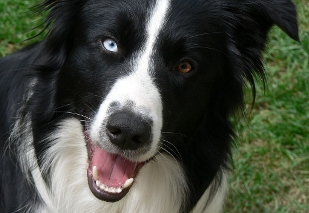 WIKIMEDIA, MAKSIMBorder collies are renowned for their sheep-herding abilities. But they may be just as adept at shooing seagulls from sea and lake shores, where the birds’ droppings sow Escherichia coli that can incubate in sand and water, sickening beachgoers. Researchers at the annual meeting of the American Society for Microbiology in Boston reported on Monday (May 19) the results of a study that pitted the dogs against seagulls and their microbial hitchhikers during the summers of 2012 and 2013.
WIKIMEDIA, MAKSIMBorder collies are renowned for their sheep-herding abilities. But they may be just as adept at shooing seagulls from sea and lake shores, where the birds’ droppings sow Escherichia coli that can incubate in sand and water, sickening beachgoers. Researchers at the annual meeting of the American Society for Microbiology in Boston reported on Monday (May 19) the results of a study that pitted the dogs against seagulls and their microbial hitchhikers during the summers of 2012 and 2013.
“Gull droppings may be one source of the indicator bacterium Escherichia coli to beach water, which can lead to swim advisories and beach closings,” said Central Michigan University researcher and study leader Elizabeth Alm in a statement. “In addition, gull droppings may contain bacteria with the potential to cause human disease.”
Alm led a team of scientists that designated 200-meter long sections of Lake Michigan beach as either dog-patrolled or control. Halfway through each summer the researchers swapped the treatments and had the trained border collies patrol the control beaches. They took water and sand samples and performed frequent counts of gulls on all the experimental beaches and found that beaches where dogs were chasing off seagulls had significantly lower bacterial counts. “Border collies are ...























